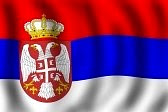Balkan Culture will Enrich the EU
 As European ministers urge Western Balkan states to meet strict conditions laid down on the long road to European Union membership, it is easy to forget the benefits and opportunities that new states and their cultures can bring to people on both sides.
As European ministers urge Western Balkan states to meet strict conditions laid down on the long road to European Union membership, it is easy to forget the benefits and opportunities that new states and their cultures can bring to people on both sides.
The last states to join the EU in 2007 faced a bumpy start and even open prejudice. As Western Balkan states progress along the path to candidacy and membership, recent history should tell us that a more informed approach could smooth out bumps in the roadmap.
Of candidate countries being considered for potential membership, some are more advanced in their progress, with most requiring further effort, such as improvements to their legal and constitutional framework. Bosnia and Herzegovina is frontline, with major work needed on internal issues, while Kosovo faces its own problems.
Candidate country Croatia has spent so much (including EU money) on bringing its infrastructure up to scratch, it can already feel like Europe, while Montenegro has been granted EU candidate status and should start accession talk later this year, if it can address corruption and organised crime. Macedonia is doing well to make the grade, despite carrying the burden of a dispute with Greece over the validity of its name.
Of course, EU conditions for candidacy are valid and well considered. They include basic rules about a stable police and justice system, adherence to the European Court of Human Rights and standards of tolerance and opportunity for all. But while politicians batten down the details and put systems in place there is more that Europeans themselves can do to play their part in this process.
Integration is a two-way road. While talk is of how a country must prepare to EU standards, what can be missed is how these cultures and people can augment the overall makeup of the EU.
Plumbing the rich depths of Balkan culture reveals a wealth of literature, philosophy and invention. Nobel Prize winning writers, world renowned inventers and great thinkers have come from this region, nourishing a legacy of resilient people with deep hearts, solid values and a determination. We should see it as a strength of the EU that we might share in this cultural richness.
At the heart of the region, Serbia has often received a great deal of attention due to its turbulent history and recent cases of discrimination and alleged corruption. That tide is turning. Serbia has submitted its response to the EU questionnaire and positive consultations are progressing, buoyed by a new enthusiasm from Serbia’s political and business leaders to confront and reconcile their own demons. European member states have been urged by the EU President to ratify the Stabilisation and Association Agreement ‘in the shortest possible time’.
Tourism potential in Serbia is still under-exploited but improved business regulations, Serbia’s very low corporation tax and favourable costs have attracted international businesses to set up offices and create much-needed jobs.
Serbia’s young internet savvy workforce (Summer 2010 figures showed an impressive 55.9% overall internet penetration, with 30.5% using Facebook) and a burgeoning creative sector are fuelling the development of Belgrade as a regional hub for business, with global PR and advertising giants swooping in on the capital.
Relaxed visa restrictions have also allowed more people to travel freely within Europe, creating an appetite for travel and discovery that they take home and invest in their own lives.
But Serbia is still an economically diverse country, with the triumvirate of Belgrade, Nis and Novi Sad presiding over the majority of scattered small towns and villages where manufacturing and industry are primed for the support that could come as part of the EU.
So, when discussions in pubs and homes turn to talk of EU expansion and the problems we might foresee, please stop and think. We should think of the opportunities of partnering with new nations, consider the cultures that will be opened to us, and remember the people we will be welcoming. Genuine integration requires more than one party.
To paraphrase John F Kennedy: Ask not what these countries can do for you – Ask what you can do for these countries.



No comments yet.
Be first to leave your comment!